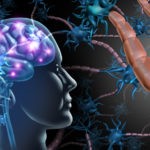Does Medicare Cover COVID-19-related Medical Expenses?

Knowing the way in which Medicare is offering coverage for COVID-19 can help seniors protect their health and their finances at the same time.
Motley Fool’s recent article entitled “How Will Medicare Cover COVID-19? Your Top Questions Answered” answered some common questions seniors have about the COVID-19 pandemic.
Will Medicare cover COVID-19 testing? The testing for the coronavirus can be difficult to obtain, depending on where you live. However, the good news is that Medicare Part B will pay for this. In addition, Medicare Advantage plans must also cover COVID-19 testing.
How much must Medicare enrollees pay to get tested? While COVID-19 testing may be a stressful process, if you’re on Medicare, you won’t pay to get the results. There’s no cost for your actual test and no co-pay for seeing a doctor who can order one.
Does Medicare pay for COVID-19 treatment? There’s no standard treatment for the coronavirus, but some patients with severe symptoms are being hospitalized. Medicare Part A will usually cover inpatient hospital treatment. As a result, if you’re admitted because of COVID-19, you’ll have your normal deductible under Part A ($1,408 per benefit period). Note that coinsurance won’t kick in during your first 60 days of consecutive hospital care, but beyond that, you’ll pay $352 per day until you reach the 90-day point in the hospital. If you have supplemental insurance, your Medigap plan may cover the cost of some of the out-of-pocket costs you have for getting hospital treatment.
Does Medicare cover a COVID-19 vaccine when it’s available? While a vaccine is at least a year out, if one becomes available, it will be covered by Medicare Part B and you won’t have a copay for it.
Will Medicare cover mental health services? Many seniors are having a hard time coping with the pandemic and its effects. Some are feeling isolated in their homes, and others are feeling anxious. Medicare does cover mental health services, and you may be able to meet with a professional remotely via telemedicine. Generally, you will be subject to your Part B deductible, plus 20% coinsurance. Seniors who are struggling with mental health issues can also call the Substance Abuse and Mental Health Services Administration’s Disaster Distress Helpline at 1-800-985-5990.
The COVID-19 crisis has been especially tough on seniors.
Knowing what to expect from Medicare could make a this a little easier.
If you’re interested in the CDC’s recommendation for Care Plans for older adults, see https://galligan-law.com/covid19-update-cdc-recommends-care-plans-for-both-older-adults-and-caregivers/
Motley Fool (April 30, 2020) “How Will Medicare Cover COVID-19? Your Top Questions Answered”


